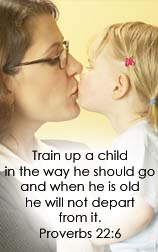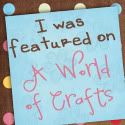At the end of the last school year (which was during our summer session), the children and I were learning about the Renaissance period. So, when the opportunity arose to review a fun-looking art history program, I jumped right on board. For the past several weeks the children and I have been using the
HiGASFY Art History Video Series to review that time period, thanks to the Homeschool Review Crew. It's been a wonderful way to include
art history (and more) in our week.

We were introduced to Mrs. Beth and her animated drop of paint Gasfy. Mrs. Beth has a love of teaching, plus a love of art and history, which she combined to create this series. Not only that, but she also was a flight attendant who traveled all over the world, so she was able to add that knowledge to it as well. And, believe it or not, this curriculum was first taught by her at a college preparatory school. Of course, I'm sure it was changed up a bit to make it suitable for children in 1st through 8th grade. She has quite the way of weaving history and art as she tells her stories, and then it expands to touch on other subjects in the lesson plans. It's quite the fun and comprehensive program.
This curriculum is an online, subscription based video series, so you do have to have a computer with good internet access. We were given a three month subscription. In order to access the program we were sent two PDF files. One was a letter with instructions, the other was a file with a list of the YouTube links. If you were to sign up for this program you would have access to the YouTube videos directly from the site. In addition to the videos, we had access to the downloadable curriculum bundle. These are also accessed from the HiGASFY website, under Subscription Sign In tab.
Each row contains the icons that go to the Lesson Plans, Name That Artist powerpoint, and flashcard files for the different art eras.
The lesson plans include suggested art projects, critical thinking questions, cross curricular activities in several subjects (writing, geography, history, science, vocabulary), puzzles (crosswords and word searches). Next, the Name That Artist powerpoint game is the file that is meant to be played at the end of the series to measure what the children have retained. The Flashcards files contain a collection of the artwork along with titles and artist names that can be printed out and made into, well, flashcards.
So far, most of the lessons have been able to been taught straight from the computer. I appreciate this as it is less ink being used. Of course, if you prefer to teach away from the computer, all you have to do is print them out. Don't you just love options? I also haven't been printing out the flashcards yet as they will take quite a bit of colored ink. So, we have just been viewing and discussing them while looking at them on the screen.
The HiGASFY Art History Video Series includes four different art eras: Renaissance, Baroque, Impressionist and Post-Impressionist. We have access to all of them. As I've mentioned we have been focusing in the Renaissance era, so that is the one I will be discussing. However, from what I can tell, all the art periods' lessons are arranged in a similar fashion. There are a total of 16 lessons, 12 of which have video lessons.
First, let's look a bit at the videos that make up the core of the curriculum.
I just have to include the introduction of Gasfy coming out of the paint can to write the name of the program.
In case you were wondering, HiGASFY stands for "Have I Got a Story For You." Gasfy paints it on the screen, and then the rest of the words fade away and the HIGASFY letters join together.
Mrs. Beth then introduces as to the lesson, interacting with Gasfy. I love how Mrs. Beth will explain things to Gasfy and the viewer learns right along with him.
She'll then go into the "Story Time" part of the lesson, which will include images and maps and such.
Then we will get to look at different works of art. I love that she directs us to notice details that we would overlook on our own. Or maybe we would notice, but not understand.
The children, and even I, have learned a lot about the Renaissance period, including the fact that it means "rebirth" which I didn't even know, and that is came out of the time of the Bubonic (or Black) Plague. Poor Gasfy was so worried about it, he was scared of Mrs. Beth's pet rat.
After we watch the lesson's video, we start working through the activities. I decided from the beginning that we would work on them throughout the week, instead of trying to get them done all in one day.
Let's take a look at the Lesson Plans.
The Lesson Plans for the Renaissance era start with the Table of Contents and a Parent/Teacher Guide. Then it moves into the lessons.
Here is a list of lessons:
- Lesson 1: Portfolio
- Lesson 2: Introduction to the Renaissance (intro to the art period)
- Lessons 3-7 Leonardo da Vinci (intro to the artist, examination of masterpieces)
- Lesson 8: Free Draw
- Lessons 9-12: Michelangelo (into to the artist, examination of masterpieces)
- Lesson 13: Free Draw
- Lessons 14-15: Raphael
- Lesson 16: Free Draw
Each of the lessons are organized in the same way.
- Objectives
- Suggested Activity (usually pick one out of several, but can do more)
- Critical Thinking (open ended questions to get the children talking)
- Vocabulary (a list of words with part of speech and definition)
- Writing (several suggestions for writing activities that focus on what was learned)
- Geography (mapwork, usually locating places discussed in the video on a map. Advanced activities usually involve research)
- Science (activities related to the lesson)
- History (activities related to the lesson)
There are occasionally additional activities and activities for advanced students.
Here's a look at one of the pages:
The crossword puzzles and word searches that I mentioned above are found at the end of artist's section, prior to beginning the next artist.
Here's another sample:
As we work through the lessons, we have been watching the videos and working on activities. As there are five lessons on Leonardo da Vinci, he is the artist we have learned about so far. I have to say, I love the titles of the videos. Here, let's take a look at the Leonardo da Vinci lesson titles.
- Episode 1: Who Needs a Flea Collar?
- Episode 2: I'll Never Paint Again
- Episode 3: Leonardo's Code
- Episode 4: Vitruvian Man and a Horse
- Episode 5: Are You Watching Me?
- Episode 6: Let's Eat
I love how the titles tease at what we will be learning. The flea collar for Episode 1 refers to the fleas who came on the rats and brought the Bubonic Plague to Europe, killing so, so many people. The "Are you watching me?" title refers to the Mona Lisa, and the way her eyes always seem to be following you. Little things from the lessons that stand out. But there is so much more. I truly appreciate all the detail we have been learning from Mrs. Beth. For example, learning that Leonardo da Vinci had a habit of not finishing his paintings, and that when he was an apprentice he helped to finish his master's painting (ironically, now that I think about it), The Baptism of Christ, and he used different paint and more detail in the angel he worked on than what Verrocchio did on his. I was flabbergasted to learn that the Mona Lisa appears to be wearing a fine, transparent veil. And was intrigued to realize I had missed details in the background. We also learned that one of his paintings, the Benois Madonna, is probably also unfinished. And in that lesson we learned that da Vinci usually painted scenes in his windows, which is missing from this picture.
I love that we can continue to examine the works of art after the videos are over, through the flashcards.
As I mentioned, we are to pick at least one art activity to do from the lesson. This activity will relate to what was discussed in the video.
For example, the children have created works of art with perspective:
Drawn pictures and then traded them to finish each others pictures.
Drawn or painted a scene outside a window.
And even created a creature by combining details from different animals.
Additionally, we discuss the Critical Thinking questions, where I ask the questions and have them take turns answering. Then I read through the vocabulary, seeing if anyone can define the word before I give them the written definition. We'll pull out our map or globe, or search online, to be able to complete the geography section. For science we have done such things as examining, drawing, and discussing our veins and muscles, talking about our senses, and looking at human anatomy.
As you can see, Mrs. Beth has truly made this art history curriculum much more than a look at art history. We are learning about the context of the history before learning about the artist, and then we are including many different subjects. I think it is a wonderful curriculum and one that I highly recommend. Though, if your children are like mine, you may find that the older children think some of the aspects, such as Gasfy and Mrs. Beth's interactions with him, a bit below their level. Do I believe that? Not really. But, I have some stubborn pre-teens in my house. Do I feel that the children have all learned something from this curriculum? I sure do. Even I have! All those details I mentioned above? I had no clue myself. So, I know the children have been learning new things. And, they have an opportunity to work on different hands-on art projects.
I admit, I did find it a bit troublesome that the child is at times told to go draw something, without really being told how to do so. Such as when they were told to draw something with perspective, and Mrs. Beth suggested a knight on a horse near a castle. None of my children really had any clue how to do such a thing. Granted, it wasn't written in stone that they had to do that, but I figured a bit more instruction to do it would have been nice. That is why I am glad there are multiple art activities suggested and the children only have to choose the one they are the most comfortable with.
So, do I recommend the HiGASFY Art History Video Series? I most definitely do. The videos are engaging, entertaining, and informative to watch. The lessons are varied and relatable to the details learned in the videos. And, your child will get to be hands-on as they learn.
If you're not sure what you think about it, you could take advantage of the
Free Episode (which also includes a sample of the lesson plan).
And of course, you can click on the banner below to read my fellow Crew Mate's thoughts on the program. I am actually interested in stopping by different blogs to learn more about the different eras of art.














































































![[PREMIO2009.png]](https://blogger.googleusercontent.com/img/b/R29vZ2xl/AVvXsEjXD_Gx-wZ9EM5hXKrEYLksEBkYfRQtmb8VDVTDG_yyLggQoFIstZsh4zszdG20KqErZicRzEhiNYLty7j3IMXJYsABqkXjr8pp-ncj71xCbpxlXGbGpZq2fTuDQqq1RMKV4DPcDBnBViA/s1600/PREMIO2009.png)



